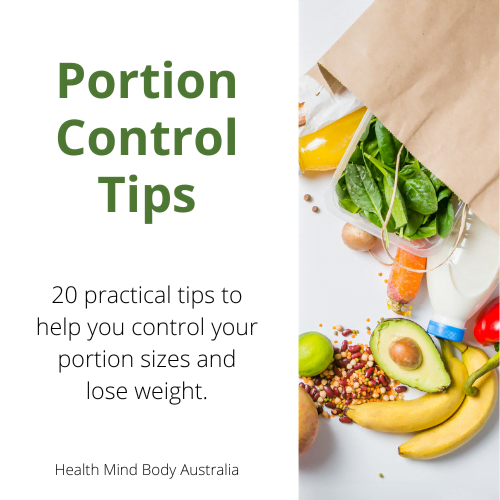8 Practical Tips for Long Term Sustainable Weight Loss Success
Embarking on a weight loss journey can be both exciting and challenging.
While the attraction of a lower number on the scale is often the driving force, it’s important to remember that sustainable weight loss encompasses much more than just numbers.
True success lies in adopting healthy habits that promote overall well-being and lasting results.
In this blog post, we’ll dive into my eight practical tips that go beyond the scale, helping you achieve long term sustainable weight loss success.
Embarking on a Journey Beyond the Scale
The pursuit of weight loss often carries a profound significance, encompassing far more than just losing weight.
It’s a journey of self-discovery, resilience, and transformation that extends beyond numbers on the scales.
As you embark on this journey, you’re embarking on a path towards a healthier and more fulfilling life.
This path is illuminated by a series of essential practices, each contributing uniquely to your success.
Beyond the simple act of losing weight, these practices guide you towards holistic well-being, sustainable habits, and a profound understanding of your body’s needs.
Let’s discuss my tips and dive into the heart of successful and sustainable weight loss.
- Understand the intricacies of cultivating the right mindset,
- Setting achievable goals,
- Prioritising nutrition,
- Mastering portion control,
- Staying hydrated,
- Engaging in physical activity,
- Getting sufficient sleep, and
- Importance of having a supportive network.
These eight pillars are in my opinion the building blocks of your journey beyond the scale.
They work in harmony, shaping your experience, and empowering you to not only achieve your weight loss objectives but also embrace a healthier and more vibrant existence.
Join us as we navigate each of these crucial elements, unravelling their significance, exploring practical implementation strategies, and uncovering the profound benefits they bring.
Your journey is more than just a destination; it’s a transformational expedition that empowers you to harness your potential, prioritise your well-being, and emerge as the best version of yourself.
Beyond the scale lies a world of possibilities – let’s embark on this transformative journey together.

1. Mindset Matters
Start with the right mindset for sustainable weight loss.
Rather than focusing solely on shedding kilos, aim to cultivate a positive relationship with your body and food.
Embrace the journey as a path toward improved health and self-confidence.
A shift in your mentality can make the process more enjoyable and sustainable.
Developing a positive mindset is crucial.
Shift your focus from just losing weight to embracing a healthier lifestyle overall.
View this journey as a chance to care for your body and boost your self-esteem.
Starting with the right mindset is a foundational aspect of achieving long-term sustainable weight loss success.
Your mindset refers to your mental attitude, beliefs, and perspective about your weight loss journey. Adopting a positive and healthy mindset can significantly impact your approach and overall success. Here’s a more detailed explanation:
Importance of the Right Mindset
Sustainability
A positive mindset shifts your focus from quick fixes and extreme measures to sustainable habits that you can maintain over time.
This mindset encourages you to make choices that benefit your body and well-being, rather than pursuing drastic changes that are hard to sustain.
Self-Compassion
A positive mindset fosters self-compassion and self-acceptance.
Instead of being overly critical of yourself for slip-ups or setbacks, you’ll approach these moments with kindness and understanding, which prevents feelings of guilt and discouragement.
Motivation
A positive mindset keeps you motivated through challenges.
When you approach your weight loss journey with a sense of excitement and determination, you’re more likely to stay committed and persistent, even when faced with obstacles.
Healthy Habits
Your mindset influences your choices.
With the right mindset, you’re more likely to make healthy choices because you genuinely want to take care of your body and prioritise your well-being.
How to Start with the Right Mindset
Set Positive Intentions
Begin each day with positive intentions.
Remind yourself why you’re on this journey and focus on the benefits of a healthier lifestyle beyond just weight loss.
Practice Gratitude
Cultivate gratitude for your body and its capabilities.
Instead of fixating on what you perceive as flaws, appreciate what your body can do and how it supports you.
Visualise Success
Imagine your future self after achieving your goals.
Visualising success can help you stay motivated and committed.
Challenge Negative Thoughts
When negative thoughts arise, challenge them.
Instead of dwelling on self-doubt or criticism, reframe these thoughts with positive affirmations.
Embrace Setbacks
Understand that setbacks are a natural part of any journey.
Rather than getting discouraged, view setbacks as opportunities for growth and learning.
Benefits of a Positive Mindset
Consistency
A positive mindset promotes consistent behaviour.
When you approach your journey with a positive attitude, you’re more likely to stick to your healthy habits even when progress is slow.
Reduced Stress
Negative thinking can lead to stress and anxiety.
A positive mindset reduces these negative emotions, which can help prevent emotional eating or stress-related weight gain.
Better Emotional Health
A positive mindset supports emotional well-being.
You’ll be better equipped to handle stressors and challenges without resorting to unhealthy coping mechanisms like overeating.
Long-Term Success
Ultimately, a positive mindset sets the foundation for long-term success.
It helps you build a sustainable and healthy relationship with food, exercise, and your body.
Implementation
Start each day with affirmations, reminding yourself of your worth and your commitment to a healthier you.
Practice self-compassion and avoid self-criticism when setbacks occur.
Benefits
A positive mindset reduces stress and promotes adherence to your weight loss plan.
It helps you stay motivated through challenges and fosters a sustainable approach.
2. Set Realistic Goals
Setting realistic goals is a fundamental aspect of achieving successful and sustainable weight loss. Realistic goals ensure that your expectations align with what is achievable within a certain timeframe, which helps you stay motivated, avoid frustration, and make consistent progress.
Let’s delve into a deeper explanation.
Importance of Setting Realistic Goals
Avoids Frustration
Unrealistic goals, such as aiming for rapid weight loss or extreme changes, often lead to frustration and disappointment when they’re not met.
Realistic goals, on the other hand, set the stage for achievable progress.
Encourages Consistency
Realistic goals are more attainable, which encourages you to stay committed and consistent over time.
Consistency is key to seeing results and maintaining them.
Builds Confidence
Achieving smaller, realistic goals boosts your confidence and self-esteem.
This positive reinforcement motivates you to continue making healthy choices.
Prevents Burnout
Setting overly ambitious goals can lead to burnout and the abandonment of your weight loss journey. Realistic goals promote a balanced and sustainable approach.
How to Set Realistic Goals
Break Down Larger Goals
Start by identifying your ultimate weight loss goal.
Then, break it down into smaller, achievable milestones.
For example, if you want to lose 10 kilos, set milestones for 0.5 to 1-kilo increments.
Consider Timeframe
Determine a reasonable timeframe for each milestone.
A common guideline is aiming for 1-2 kilos of weight loss per month.
This ensures a gradual and healthy rate of progress.
Be Specific
Make your goals specific, measurable, achievable, relevant, and time-bound (SMART).
For instance, “I will lose 2 kilos in the next 5 weeks by following my exercise and nutrition plan consistently.”
Focus on Behaviour
Shift your focus from just the outcome to the behaviours that lead to it.
Set goals related to exercise frequency, meal planning, portion control, and other healthy habits.
Benefits of Setting Realistic Goals
Sustained Motivation
Achieving realistic milestones keeps you motivated and engaged throughout your weight loss journey.
Small wins provide a sense of accomplishment.
Progress Tracking
Realistic goals provide a clear structure for tracking your progress.
Regularly hitting milestones helps you see how far you’ve come.
Prevents Extremes
Unrealistic goals often lead to extreme measures, such as crash diets or excessive exercise.
Realistic goals encourage a balanced approach that’s healthier to your body.
Long-Term Success
Realistic goals promote long-term success by encouraging healthy habits that can be maintained over time.
They set you up for a healthier lifestyle, not just short-term weight loss.
3. Prioritise Nutrition
Prioritising nutrition is a crucial component of any successful weight loss journey.
The foods you choose to fuel your body play a significant role in not only achieving your weight loss goals but also in supporting overall health and well-being in sustainable weight loss.
Importance of Prioritising Nutrition
Calorie Management
The food you consume directly impacts your calorie intake.
By choosing nutrient-dense foods, you can control your calorie intake while still providing your body with essential nutrients.
Sustained Energy
Nutrient-rich foods provide your body with the energy it needs to function optimally throughout the day.
This sustained energy helps you stay active and engaged, promoting calorie expenditure.
Hormone Regulation
Proper nutrition supports the balance of hormones that influence hunger, satiety, and metabolism.
This regulation can prevent overeating and promote a healthier appetite.
Muscle Preservation
Prioritising protein-rich foods supports muscle preservation during weight loss.
This is important for maintaining a higher metabolic rate and achieving a toned appearance.
How to Prioritise Nutrition
Balanced Meals
Aim for balanced meals that include a variety of macronutrients for sustainable weight loss.
- Carbohydrates
- Proteins, and
- Healthy fats.
Each macronutrient plays a unique role in your body’s functioning.
Whole Foods
Choose whole foods that are minimally processed over highly processed options.
Fresh fruits, vegetables, lean proteins, whole grains, nuts, and seeds should be staples in your diet.
Portion Control
Be mindful of portion sizes to avoid overeating.
Use smaller plates and bowls to help control portions visually.
Meal Planning
Plan your meals ahead of time to prevent making impulsive, unhealthy choices.
This also ensures that you have nutritious options readily available.
Use a day you have an hour or so to spare to meal plan that will help on those busy days.
Hydration
Incorporate plenty of water throughout the day.
Staying hydrated supports digestion, energy levels, and can help prevent mistaking thirst for hunger.
A balanced diet fuels your body, aids weight loss, and enhances overall health.
Implementation
Plan your meals ahead of time, including a variety of fruits, vegetables, lean proteins, whole grains, and healthy fats.
Avoid restrictive diets and instead focus on moderation and portion control.
Benefits of Prioritising Nutrition
Weight Loss
A well-balanced and nutritious diet helps create a calorie deficit necessary for weight loss.
You’ll consume fewer calories while still providing your body with the nutrients it needs in order to achieve sustainable weight loss.
Reduced Cravings
Nutrient-dense foods keep you fuller for longer, reducing the likelihood of succumbing to unhealthy cravings or snacking between meals.
Improved Digestion
Whole foods are rich in fibre, aiding digestion and promoting regular bowel movements.
This contributes to better overall gut health.
Enhanced Mood and Energy
Proper nutrition supports stable blood sugar levels, reducing mood swings and energy crashes.
You’ll feel more alert and focused throughout the day.
Heart Health
A diet rich in fruits, vegetables, and healthy fats supports cardiovascular health by reducing the risk of heart disease and lowering cholesterol levels.
4. Portion Control
Portion control is a vital aspect of managing your food intake and achieving your weight loss goals for sustainable weight loss.
It involves being mindful of the quantity of food you consume during meals and snacks.
Practicing portion control can help you manage calorie intake, prevent overeating, and maintain a healthy balance between the amount of food you eat and the energy your body expends.
Importance of Portion Control
Calorie Management
Controlling portion sizes helps you manage the number of calories you consume.
Overeating, even with healthy foods, can lead to weight gain if your calorie intake exceeds your expenditure.
Prevents Overeating
Larger portion sizes can lead to overeating, even when eating healthy foods.
Portion control helps you recognise true hunger and fullness cues, preventing the consumption of excess calories.
Mindful Eating
Practicing portion control encourages mindful eating, where you pay close attention to what and how much you’re eating.
This awareness promotes healthier eating habits.
Sustainable Habits
Portion control supports the development of sustainable eating habits that you can carry forward even after reaching your weight loss goals.
How to Implement Portion Control
Use Visual References
Familiarise yourself with visual references to estimate portion sizes.
For example, a serving of lean protein is roughly the size of your palm, a serving of grains should fit in your cupped hand, and a serving of fats is approximately the size of your thumb.
Read Labels
Pay attention to serving sizes on food labels.
They provide valuable information about how many servings are in a package and the corresponding nutritional content.
Choose Smaller Plates
Opt for smaller plates and bowls when serving yourself meals.
This can help you control portion sizes while still feeling like you have a satisfying meal.
Divide Large Portions
If you’re served a large portion at a restaurant or at home, consider dividing it in half before you start eating.
You can save the remaining portion for another meal.
Be Mindful
Eat slowly and savour each bite.
Pause between bites to assess your level of fullness and give your body time to signal that it’s satisfied.
Benefits of Portion Control
Weight Loss
By consuming appropriate portion sizes, you’ll naturally reduce your calorie intake, which supports weight loss and weight management.
Prevents Binge Eating
Portion control reduces the likelihood of consuming large amounts of food in a single sitting, which can lead to overeating and feelings of guilt.
Healthy Digestion
Smaller portions are easier for your digestive system to process.
This can help prevent discomfort, bloating, and indigestion.
Balanced Nutrition
Portion control allows you to enjoy a variety of foods without feeling deprived.
You can include all food groups in your diet while still managing your calorie intake.
Positive Eating Habits
Learning portion control encourages a healthier relationship with food and helps you become more mindful of your eating habits.
5. Stay Hydrated
Staying hydrated is a vital component of overall health and plays a significant role in supporting your weight loss journey for sustainable weight loss.
Hydration involves consuming an adequate amount of fluids to keep your body functioning optimally.
Importance of Staying Hydrated
Appetite Regulation
Dehydration can lead to feelings of hunger, even when your body actually needs fluids.
Staying hydrated helps you distinguish between hunger and thirst, preventing unnecessary snacking.
Metabolism Support
Proper hydration supports your metabolism by ensuring that biochemical reactions occur efficiently.
A well-hydrated body can process nutrients and burn calories more effectively.
Energy Levels
Dehydration can cause fatigue and decreased energy levels.
Staying hydrated helps you feel more alert and focused throughout the day, encouraging physical activity.
Digestion and Detoxification
Adequate hydration supports proper digestion and helps your body eliminate waste and toxins.
It keeps your digestive system functioning smoothly.
How to Stay Hydrated
Drink Water Regularly
Aim to drink water consistently throughout the day.
Keep a reusable water bottle with you as a visual reminder to stay hydrated.
Infuse Water
Add flavour to your water by infusing it with slices of citrus fruits, berries, cucumber, mint, or herbs.
This can make drinking water more enjoyable.
Monitor Urine Colour
Pay attention to the colour of your urine.
Pale yellow or straw-coloured urine indicates proper hydration, while darker urine suggests the need for more fluids.
Hydrating Foods
Consume foods with high water content, such as fruits cucumber, watermelon, oranges, and lettuce for example to contribute to your hydration.
Implementation
Carry a reusable water bottle and set reminders to drink throughout the day.
Infuse water with fruits or herbs for added flavour.
Benefits of Staying Hydrated
Weight Loss Support
Staying hydrated can help control appetite and prevent overeating.
Often, our bodies confuse thirst with hunger, leading to unnecessary snacking.
Calorie-Free Hydration
Water is calorie-free and a healthier alternative to sugary beverages.
By choosing water over calorie-laden drinks, you reduce your overall calorie intake.
Enhanced Physical Performance
Hydration supports physical performance by maintaining fluid balance, preventing cramps, and helping your muscles function optimally during exercise.
Mood Improvement
Dehydration can lead to mood swings and irritability.
Staying hydrated promotes a stable mood and emotional well-being.
Clearer Skin
Proper hydration can improve skin health, contributing to a clearer complexion and reducing the appearance of dryness.
6. Incorporate Physical Activity
Incorporating physical activity is a crucial aspect of achieving successful and sustainable weight loss. Exercise not only helps you burn calories but also provides a wide range of physical and mental health benefits.
Importance of Incorporating Physical Activity
Calorie Expenditure
Engaging in physical activity burns calories, creating a calorie deficit necessary for weight loss.
It contributes to the overall energy balance equation.
Metabolism Boost
Regular exercise can increase your resting metabolic rate, meaning your body burns more calories even when you’re not actively exercising.
Muscle Maintenance
During weight loss, some muscle loss can occur.
Incorporating exercise, particularly strength training, helps preserve and build lean muscle mass.
Cardiovascular Health
Physical activity strengthens your heart, improves circulation, and reduces the risk of heart disease, stroke, and other cardiovascular conditions.
How to Incorporate Physical Activity
Choose Activities You Enjoy
Opt for exercises that you genuinely enjoy, whether it’s walking, jogging, cycling, swimming, dancing, yoga, or team sports.
This increases the likelihood that you’ll stick with it.
Start Gradually
If you’re new to exercise, start with manageable levels of intensity and duration.
Gradually increase the intensity and duration as your fitness improves.
Set Realistic Goals
Set exercise goals that align with your current fitness level.
Aim for a certain number of workouts per week or a specific amount of time spent being active.
Mix It Up
Incorporate a variety of exercises to prevent boredom and keep your body challenged.
Alternate between cardiovascular activities and strength training.

Benefits of Incorporating Physical Activity
Weight Loss
Regular physical activity increases calorie expenditure, supporting weight loss and helping you achieve your goals more effectively.
Improved Fitness
Over time, exercise enhances your cardiovascular fitness, endurance, and strength, enabling you to engage in daily activities more comfortably.
Metabolic Health
Exercise can improve insulin sensitivity, blood sugar regulation, and lipid profile, contributing to better metabolic health.
Mood Enhancement
Physical activity triggers the release of endorphins, which are natural mood elevators.
Regular exercise can reduce stress, anxiety, and depression.
Better Sleep
Engaging in regular exercise can improve sleep quality, leading to better rest and recovery.
Safety Considerations
Consult a Professional
If you’re new to exercise or have underlying health conditions, consider consulting a healthcare professional before starting a new exercise regimen.
Warm-Up and Cool Down
Always warm up before engaging in vigorous exercise and cool down afterward to prevent injuries and reduce muscle soreness.
Listen to Your Body
Pay attention to your body’s signals.
If you experience pain, discomfort, or shortness of breath, stop and rest.
7. Get Adequate Sleep
Getting adequate sleep is a critical component of achieving successful and sustainable weight loss including maintaining overall health.
Sleep plays a significant role in regulating various physiological processes, including metabolism, appetite, and hormone production.
Importance of Getting Adequate Sleep
Hormone Regulation
Sleep is essential for regulating hormones that control hunger and fullness, such as ghrelin and leptin.
Poor sleep can disrupt these hormones, leading to increased appetite and overeating.
Metabolism Support
Adequate sleep supports a healthy metabolism.
Sleep deprivation can negatively impact metabolic rate and lead to difficulties in managing weight.
Energy Balance
Quality sleep helps maintain a healthy energy balance by ensuring that your body is well-rested and able to function optimally.
Muscle Recovery
Sleep is crucial for muscle recovery and growth.
This is especially important if you’re engaging in regular exercise to support your weight loss efforts.
How to Get Adequate Sleep
Establish a Routine
Aim for a consistent sleep schedule by going to bed and waking up at the same times each day, even on weekends.
Create a Relaxing Bedtime Routine
Engage in calming activities before bed, such as reading, listening to soothing music, or practicing gentle stretches.
Limit Screen Time
Reduce exposure to screens including phones, tablets, computers, and TVs before bedtime, as the blue light emitted can interfere with the production of the sleep hormone melatonin.
Create a Comfortable Sleep Environment
Ensure your sleep environment is conducive to rest.
Keep the room dark, quiet, and at a comfortable temperature.
Watch Your Diet
Avoid heavy meals, caffeine, and large amounts of fluids close to bedtime to prevent disruptions in sleep.
Implementation
Create a bedtime routine that promotes relaxation.
Ensure your sleep environment is comfortable and free from distractions.
Benefits of Getting Adequate Sleep
Weight Management
Adequate sleep supports healthy appetite regulation, reducing the risk of overeating due to hormonal imbalances.
Enhanced Cognitive Function
Quality sleep improves cognitive function, memory, and concentration, helping you make healthier decisions throughout the day.
Mood Stabilisation
Sleep has a direct impact on mood.
Prioritising sleep can help you manage stress, anxiety, and emotional eating triggers.
Optimised Recovery
Adequate sleep supports muscle recovery and overall physical health, ensuring that your body is prepared for exercise and daily activities.
Heart Health
Consistent, restorative sleep contributes to a healthier cardiovascular system and reduces the risk of heart disease.
Tips for Better Sleep
Limit Naps
If you need to nap during the day, keep it short to around 20-30 minutes and avoid napping too close to bedtime.
Stay Active
Regular exercise can improve sleep quality, but avoid intense workouts close to bedtime.
Manage Stress
Practice stress-relief techniques, such as deep breathing, meditation, or gentle yoga, to promote relaxation before bed.
Avoid Alcohol and Nicotine
These substances can disrupt sleep patterns and hinder the quality of your rest.
8. Cultivate a Support System
Cultivating a support system is a key factor in achieving successful and sustainable weight loss.
Having a network of friends, family, or even joining online communities can provide you with encouragement, accountability, and a sense of belonging on your weight loss journey.
Importance of Cultivating a Support System
Motivation
A support system provides motivation when you face challenges or setbacks.
Knowing that others are cheering you on can boost your determination to stay on track.
Accountability
Sharing your goals with others holds you accountable for your actions.
When you have someone to report your progress to, you’re more likely to stick to your commitments.
Emotional Support
Weight loss can be emotionally challenging.
Having a support system means having someone to lean on when you need encouragement, guidance, or a listening ear.
Sharing Knowledge
Your support system can provide valuable insights, tips, and advice based on their own experiences.
This exchange of information can help you make informed choices.
How to Cultivate a Support System
Share Your Goals
Openly communicate your weight loss goals with friends, family, or like-minded individuals.
This verbalisation solidifies your commitment.
Join Support Groups
Consider joining local or online weight loss support groups, forums, or social media communities where you can connect with others who share similar goals.
Recruit a Workout Buddy
Find a friend or family member who’s interested in exercise and make a commitment to work out together regularly.
Enlist Family Support
Let your family know about your goals and ask for their support in making healthy food choices and participating in physical activities.
Seek Professional Help
If needed, consult a registered dietitian, personal trainer, or therapist for professional guidance and support.
Implementation
Share your goals with friends, family, or join online forums related to weight loss.
Engage in discussions, celebrate achievements, and seek advice when needed.
Benefits of a Support System
Sustained Motivation
Your support system provides ongoing encouragement, keeping your motivation levels high even when faced with challenges.
Consistency
Knowing that others are counting on you can boost your commitment to sticking with your healthy habits consistently.
Stress Reduction
A support system provides an outlet to share your feelings and challenges, reducing emotional stress and preventing emotional eating.
Positive Environment
Surrounding yourself with individuals who support your goals creates a positive and empowering atmosphere for your weight loss journey.
Shared Experiences
Interacting with others who are on similar journeys allows you to share successes, setbacks, and strategies, creating a sense of camaraderie.
Final Thoughts – 8 Practical Tips for Long-Term Weight Loss Success
Embarking on a sustainable weight loss journey is a profound commitment to enhancing your well-being and achieving personal transformation.
As you venture beyond the scale, you’ll discover that true success extends far beyond just the numbers.
By adopting a holistic approach that encompasses mindset, nutrition, portion control, hydration, physical activity, sleep, and a supportive network, you’re setting the stage for not only achieving your weight loss goals but also nurturing a healthier, more fulfilling life.
Starting with the right mindset lays the foundation for your sustainable weight loss journey.
Embrace self-compassion, positivity, and the understanding that this is a process of sustainable change, fostering a positive relationship with your body and food.
Setting realistic goals empowers you to celebrate achievements and milestones along the way.
These stepping stones guide you towards your ultimate objective, promoting a sense of accomplishment and boosting your confidence.
Prioritising nutrition fuels your body with the nutrients it needs for optimal functioning.
By choosing whole, nutrient-dense foods and practicing portion control, you’re making choices that support weight loss while nourishing your body from the inside out.
Staying hydrated is a fundamental aspect of overall well-being.
Adequate water intake not only supports digestion and metabolism but also prevents thirst-related cravings and helps regulate your appetite.
Incorporating physical activity adds a dynamic layer to your journey.
Regular exercise not only contributes to calorie expenditure but also enhances your physical fitness, mental well-being, and overall quality of life.
Getting adequate sleep is a cornerstone of successful and sustainable weight loss.
Quality sleep supports hormone regulation, appetite control, and muscle recovery, ensuring that your body is well-prepared to face each day’s challenges.
Cultivating a support system creates an environment of motivation, accountability, and emotional resilience.
Surrounding yourself with individuals who share your goals reinforces your commitment and provides invaluable encouragement.
In the end, your weight loss journey is a unique path, one that integrates these interconnected aspects into a tapestry of success.
By adopting a positive mindset, nourishing your body with balanced nutrition, engaging in regular physical activity, prioritising hydration and sleep, and fostering a supportive network, you’re not merely shedding weight – you’re crafting a new chapter of your life.
Embrace each step, celebrate each achievement, and remember that the journey beyond the scale is a transformative experience that empowers you to achieve lasting sustainable weight loss success and a healthier, more vibrant you.
I would love for you to follow me on Instagram for daily updates and to follow my healthy weight loss journey.
Amy xx



- Accountability in Weight Loss: The Importance of Accountability
- 28 Day Challenge – No Time for Dieting – The Healthy Mummy
- 5 Lessons Learned in Weight Loss: Insights from a Personal Journey
- Plant Based Keto Lifestyle
- Importance of Fitness Routines for Busy Mums







